Our process
Pitch part 1
During the first week of the academic year (generally the 3rd week of September), we organize an afternoon for the students and clients, where you pitch the project to the students (in English). We do not have much time per project as there are many - each project is presented in 4 minutes. This session takes about 2 hours. Afterwards there is a networking drink giving the students the opportunity to discuss the projects with the clients.
Students choose the top 3 projects they would like to work on. Our team then divides the students over the projects according to their preferences. It is important to give the students a good and clear idea of what the project entails at this pitch presentation. The better the presentation, the better and more motivated the students that choose your project.
Timeline
We start mid September and end mid December. Students work 4 days a week on the project during 11 weeks in total. They work on campus in “the Hive”, in close collaboration with supervisors and coaches.
The process
we execute the project in three phases
Prototype phase
During the first, so-called prototype phase the students brainstorm on concepts and ideas and create small quick prototypes to validate the various options. The end product of this phase is a final prototype that illustrates what exactly the end product will entail. During this phase there is a close collaboration with the client. We iterate on these various ideas until a final concept is approved.
This phase typically takes around 3-4 weeks, depending on the demands of the project.
Production phase
In the production phase we don’t need the client as much, this is where we do our thing: we develop the game. Of course there are regular meetings with the client (once every two weeks for example) where the students present the progress to the client, feedback can then be given and applied. Here our supervisors guide them through the production process.
Development of the game happens with a certain game engine, typically we use either Unreal or Unity depending on the project requirements, but others (like Godot) are certainly possible. We use Perforce for our source control needs and keep track of the planning in Hack ‘n Plan.
Polish phase
In the last two weeks the students are forbidden to add any new feature to the game, instead they focus on perfecting the features that have been implemented. This way we end up with a polished product and not a messy pile of unfinished features.
Testing
Each year we have a testing day where we take the project outside and have the general public come and playtest our games. This always is an eye-opener for the students and provides them with valuable, real-life feedback. In the past we’ve been a guest at Arhus in Roeselare and the Mind and Makerspace in Brugge.
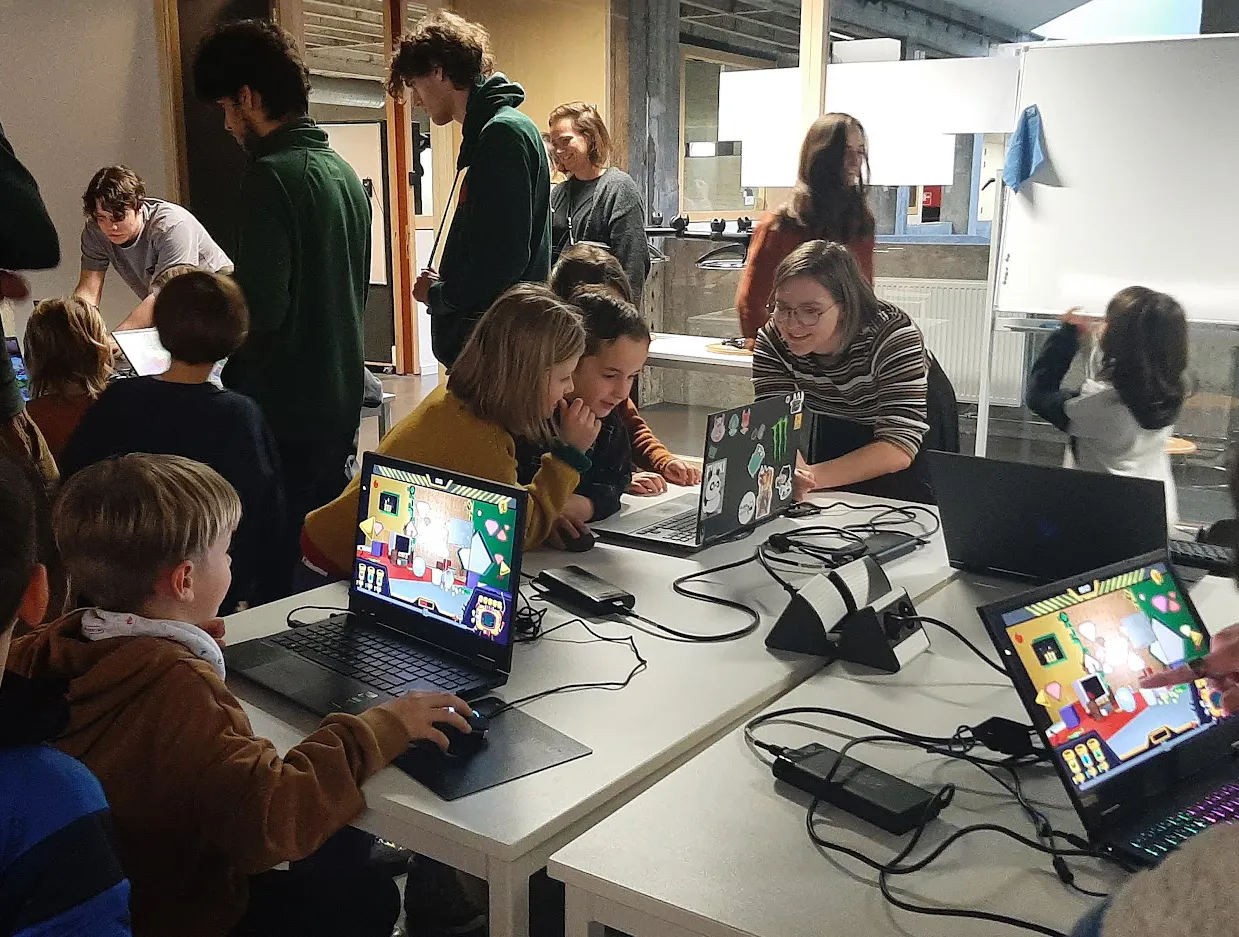
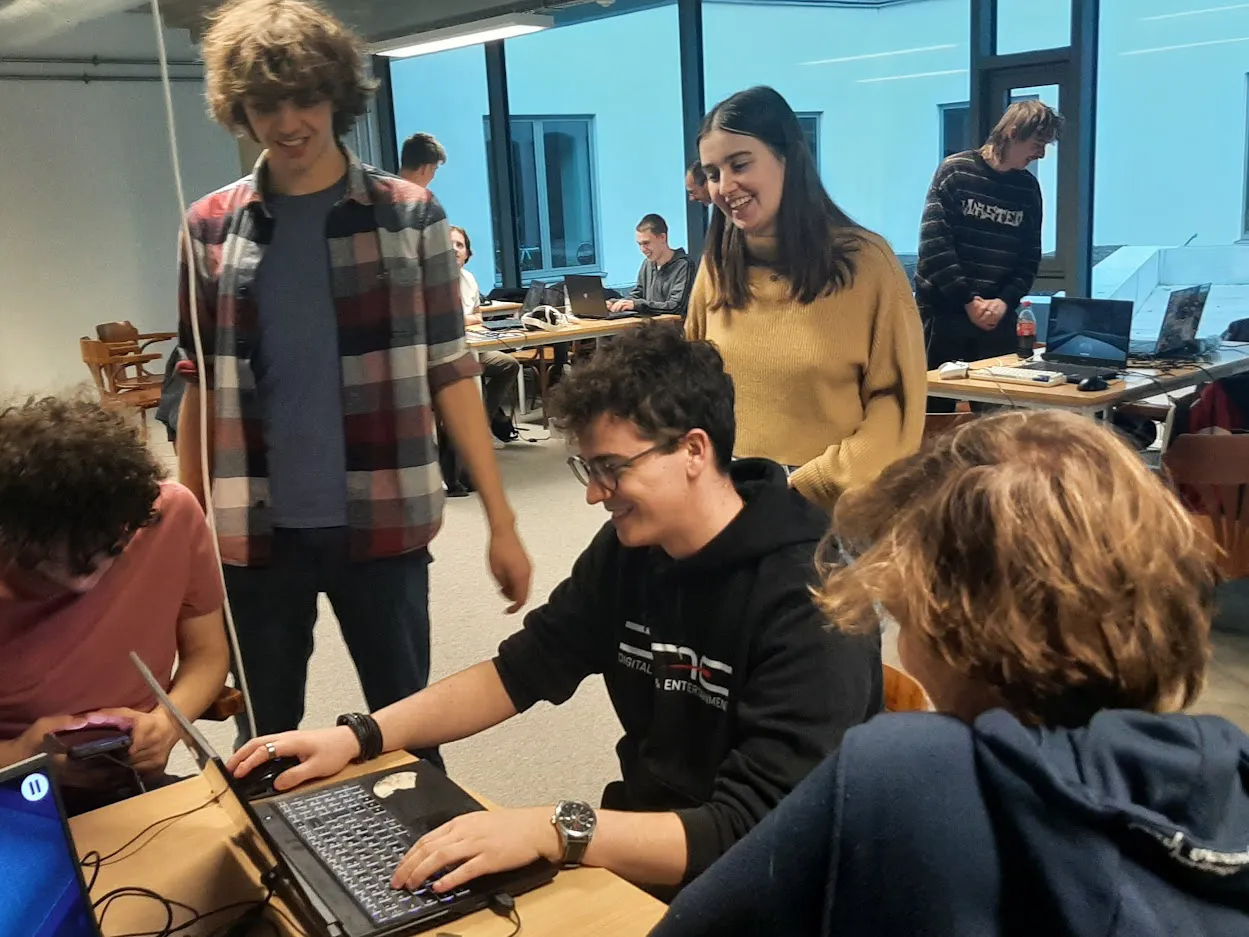
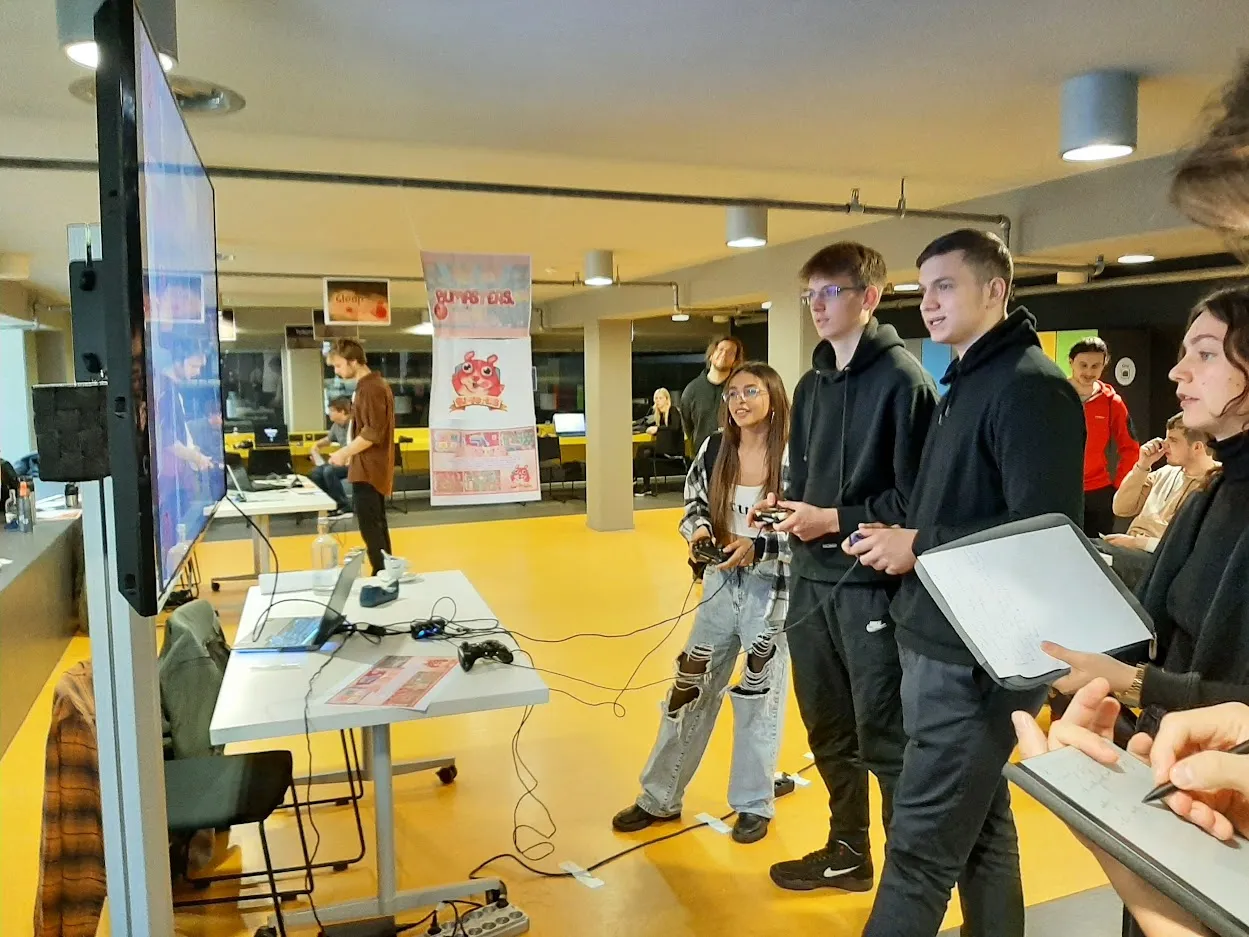
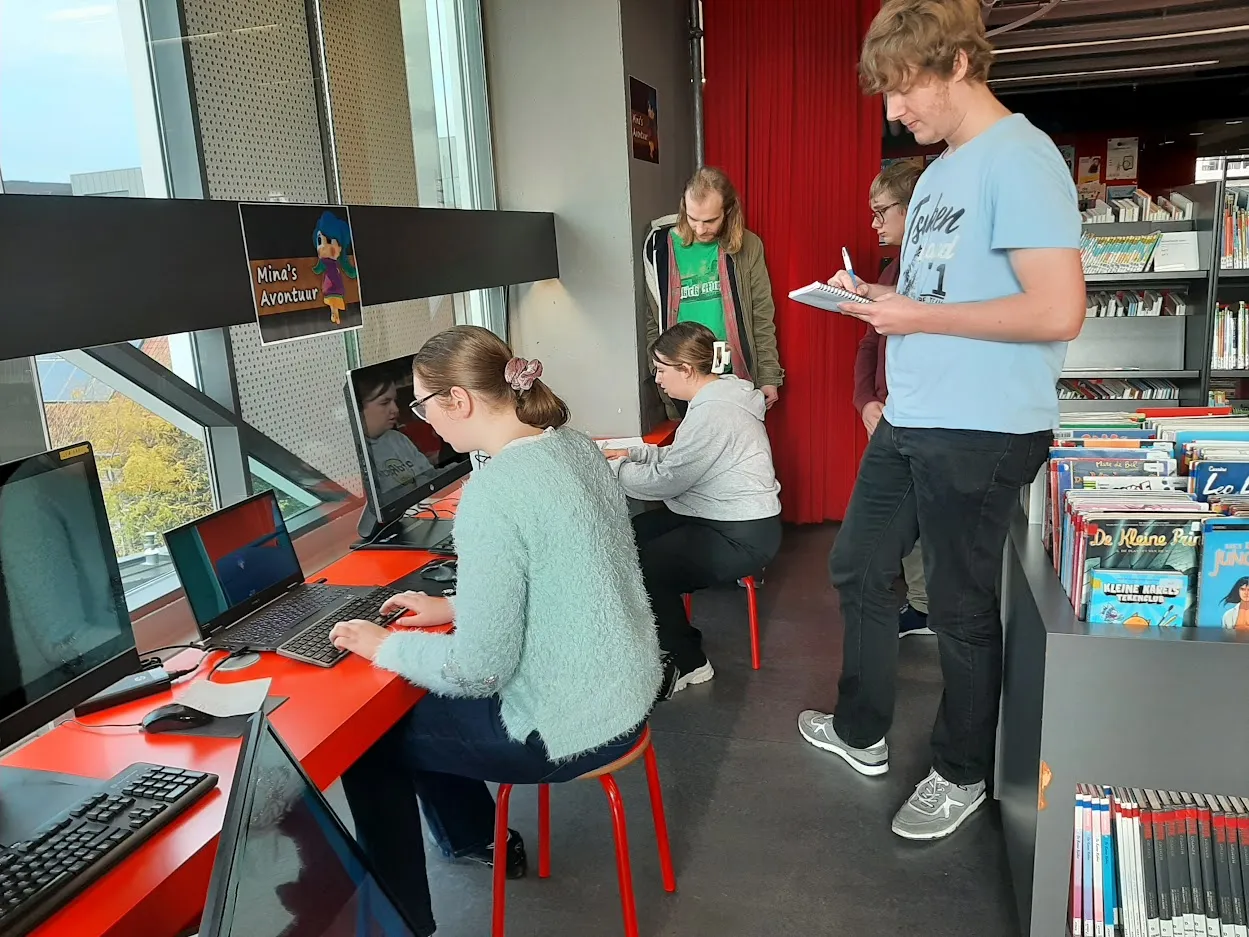
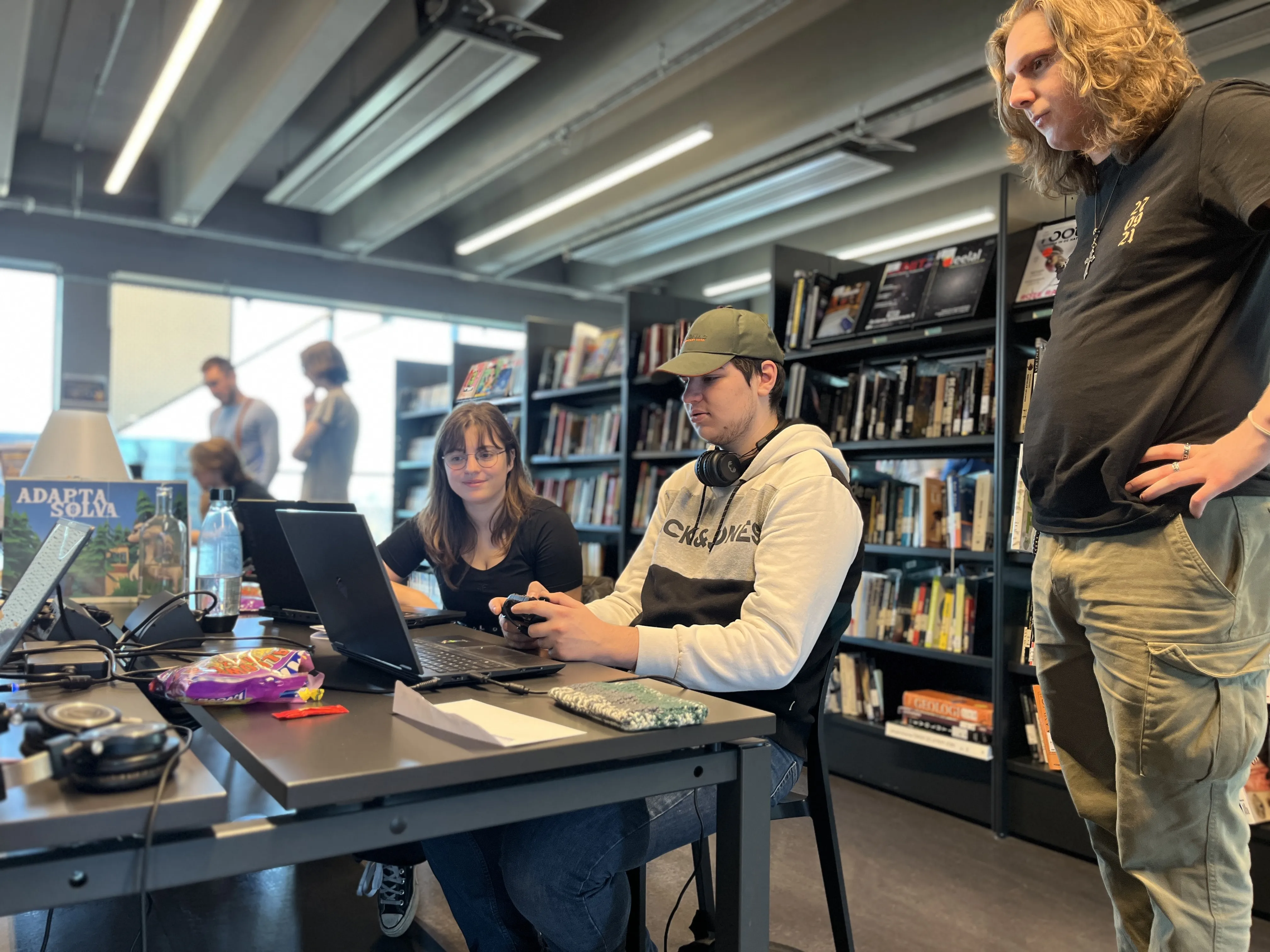
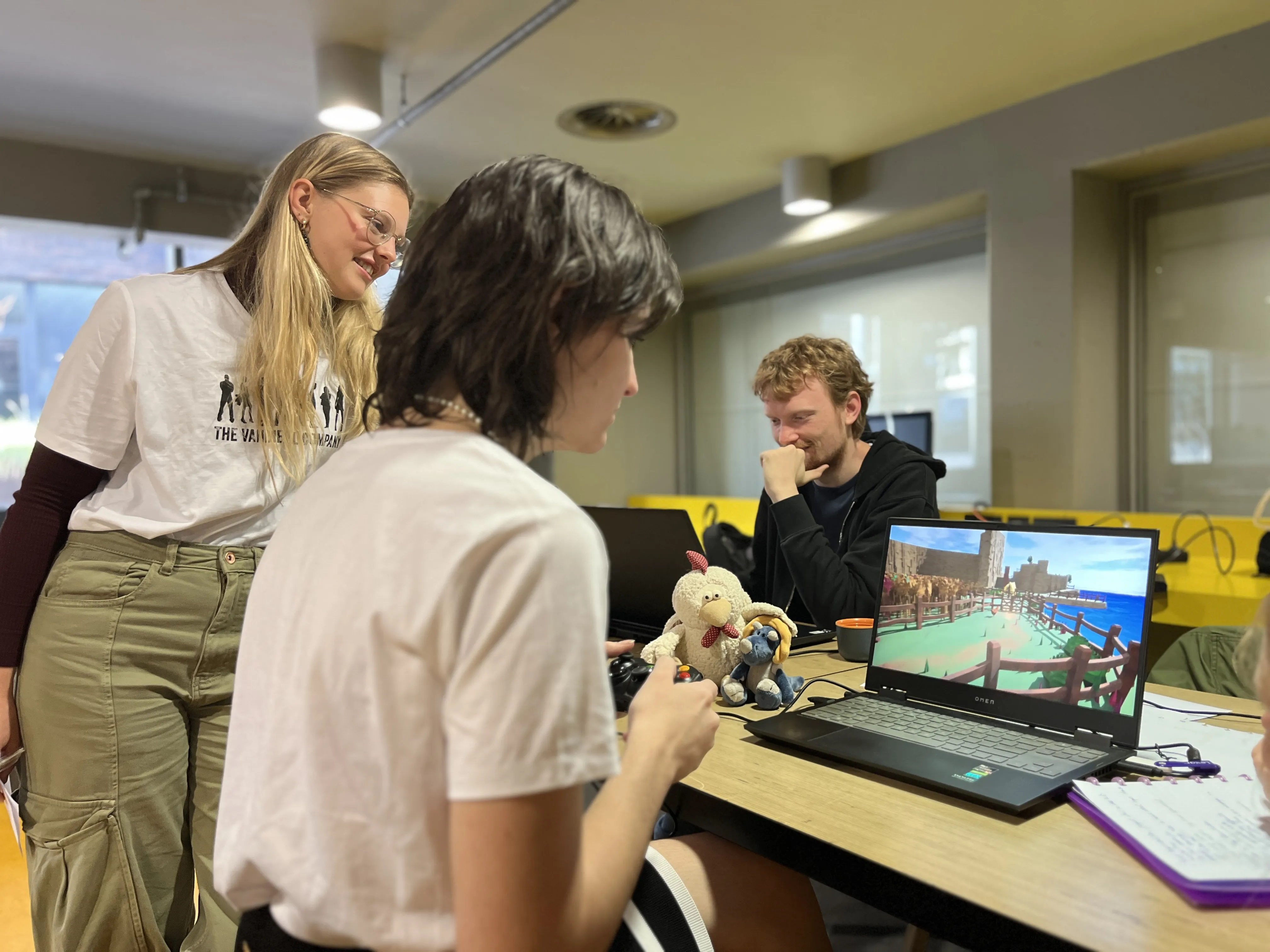
Pitch part 2
When the projects are done we have another full day of pitches. This time the groups pitch the results for the clients and all other students. We take the whole day for this, each project has about 10 minutes to pitch and demonstrate the end result. Afterwards there is a again a networking drink where all the games can be played.

Aaand done!
And then we’re done. We deliver all source files, the builds, the trailer, sceenshots and whatnot. It is then up to the clients to make good use the proof of concept that we delivered. This website aims to showcase some of these results, checkout the previous projects to get an idea of what you can expect.
